Over two nights in Miami, the top 20 Democratic contenders squared off in the first major tussle of the 2020 presidential campaign, debating everything from health care policy and immigration to climate solutions and geopolitical challenges.
Here are 10 of the top takeaways from the first Democratic debates:
1. Joe Biden bombed
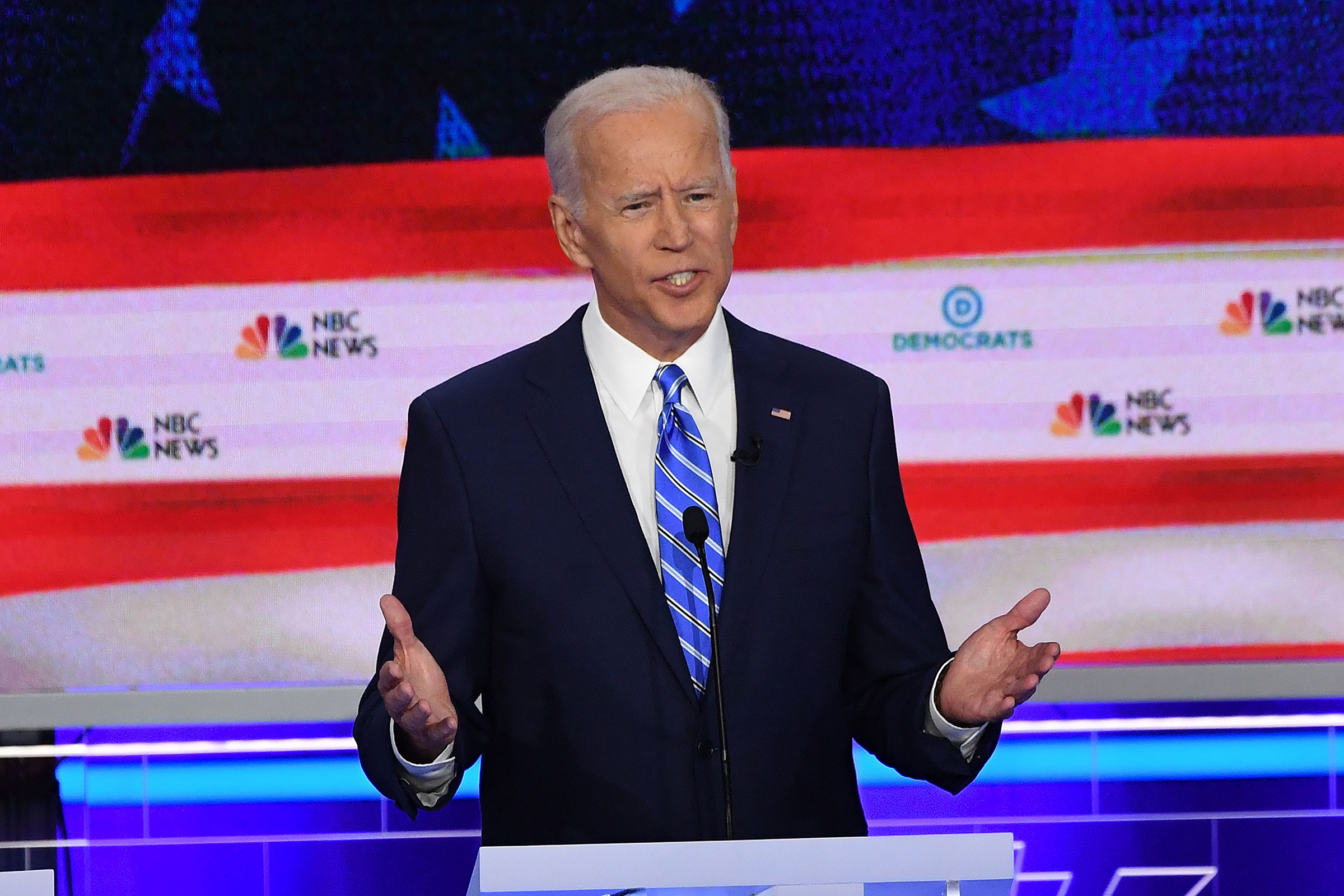
Former Vice President Joe Biden knew the fire was coming. His team had prepared him for it and had rejoinders at the ready. But anticipating something and experiencing it are far different animals. So when California Rep. Eric Swalwell quoted Biden’s own words about passing the political torch, it cut deeply. Then New York Sen. Kirsten Gillibrand hinted that Biden couldn’t be trusted on abortion, leading Biden to remind voters of his decades in Washington. But the exchange voters will remember came courtesy of Harris, who criticized Biden’s opposition to federal busing mandates. Biden had his response prepared, noting that after law school, he became a defense attorney while Harris became a prosecutor. But Harris had drawn blood. Thursday was the first time Biden’s rivals could directly challenge the 76-year-old political insider, and it surprised him. Twice during the evening, when he had blown past his allotted time, Biden apologized: “My time is up.” The words seemed portentous. — Philip Elliott / Miami
Read More: Here’s What to Know About Biden’s History With Busing
2. Women won both nights
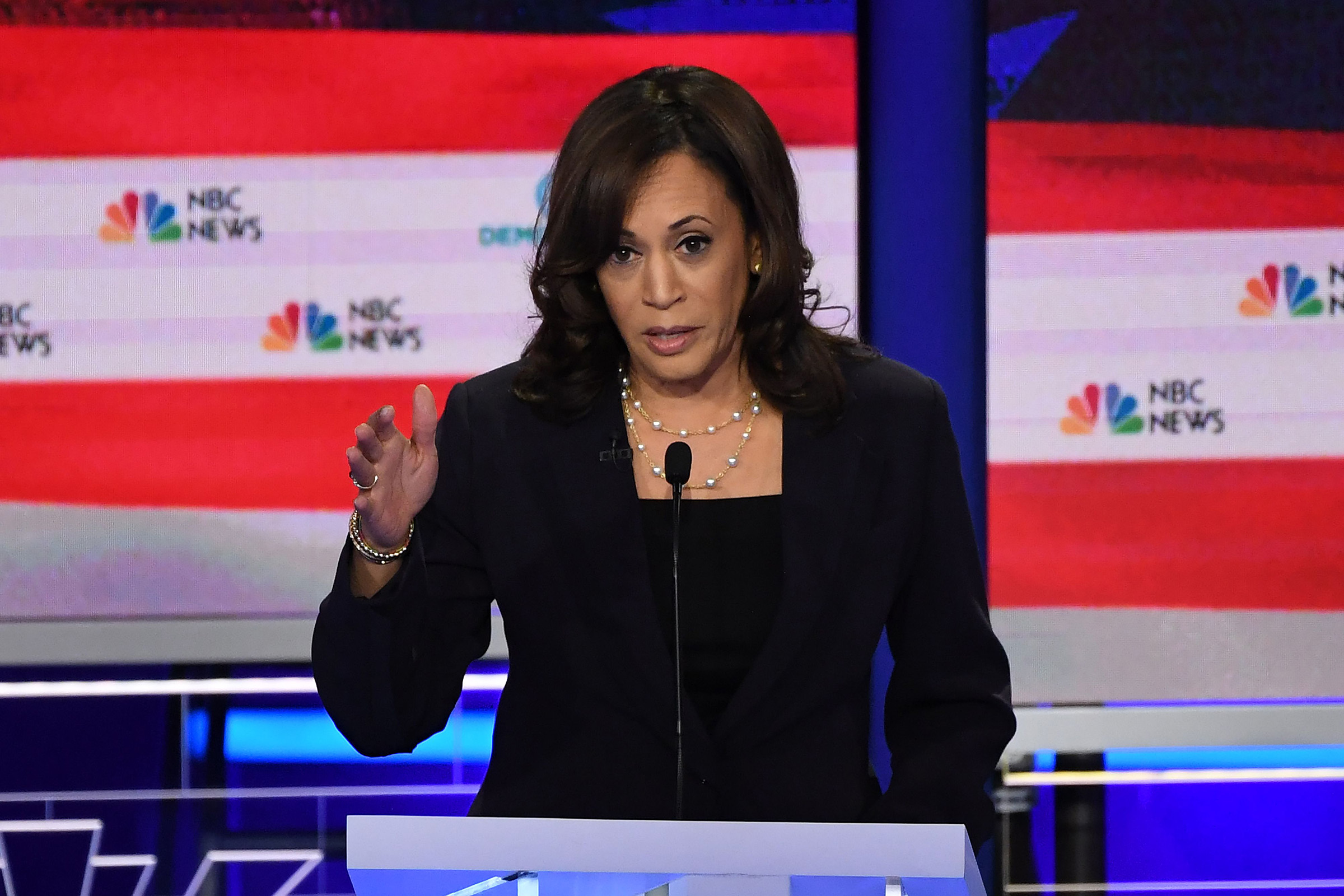
The women candidates outperformed the men on both nights. They made few major blunders and landed several major blows. Massachusetts Sen. Elizabeth Warren set the pace on nearly every policy issue on night one, and managed to escape without taking any real hits from rivals. On the second night, New York Sen. Kirsten Gillibrand laid out her plan for a “family bill of rights” that includes a national paid leave plan, universal Pre-K, affordable daycare, paid leave and access to abortion, while author Marianne Williamson emerged as the viral sensation of the night with a series of bizarre answers.
But it was California Sen. Kamala Harris who turned in the most impressive performance on the second night of the debates, sharply articulating her positions on immigration and racial justice while subtly emphasizing her gender. She got major applause for promising to restore hope with “the microphone that the President of the United States holds in her hand,” and argued that a rape victim should be able to report a crime without worrying about being deported. Harris also delivered the most dramatic moment of the night, confronting Biden for his record on busing and his political allegiances with two segregationist Senators.
“There was a little girl in California who was part of the second class to integrate her public schools and she was bussed to school every day,” she said, as he looked stricken. “That little girl was me.” The attack was a triple axel: she attacked a vulnerability of Biden’s record, while reminding voters that he is old, white and male. In that moment, Biden looked like the Democratic Party’s past, and Harris more like its future. — Charlotte Alter
Read More: Kamala Harris Has Been Waiting for Her Breakout Moment
3. ‘Pass the torch’
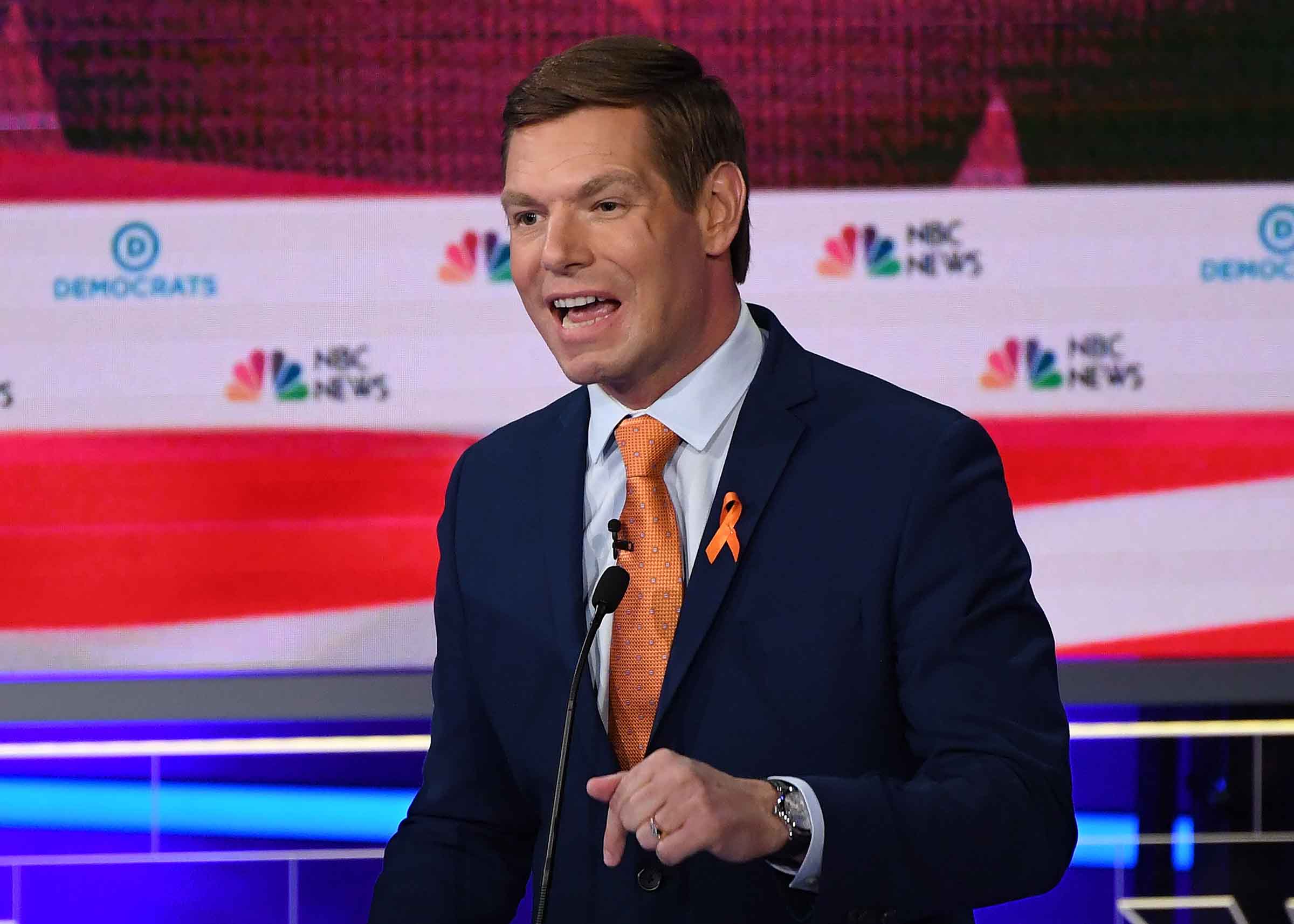
The hunger for generational change has been one of the dominant forces in the Democratic primary, and Swalwell made it the centerpiece of his pitch in Miami, telling Biden it was time to “pass the torch.”
“We can’t be a forward looking party if we look to the past for our leadership,” Swalwell said. The changing of the guard is a conversation that has been brewing for years in a party whose leadership ranks are clogged with older, experienced politicians. Now new candidates are forcing the issue, which was evident not only in Swalwell and Biden’s exchange, but also in more subtle nods to issues younger voters are concerned about.
At least two candidates volunteered that they have student debt. Gun violence and climate change were among the issues chosen when candidates were asked what the first issue they would tackle if elected would be. And there was broad gestures of inclusion throughout the debates for members of the LGBTQ community.
“When I get to the current age of the current president in the year 2055, I want to be able to look back on these years and say my generation delivered climate solutions, racial equality, and an end to endless war,” South Bend, Ind., Mayor Pete Buttigieg said in his closing remarks. “Help me deliver that new generation to Washington before it’s too late.” — Lissandra Villa
4. Democrats are still short on specifics to solve the border crisis
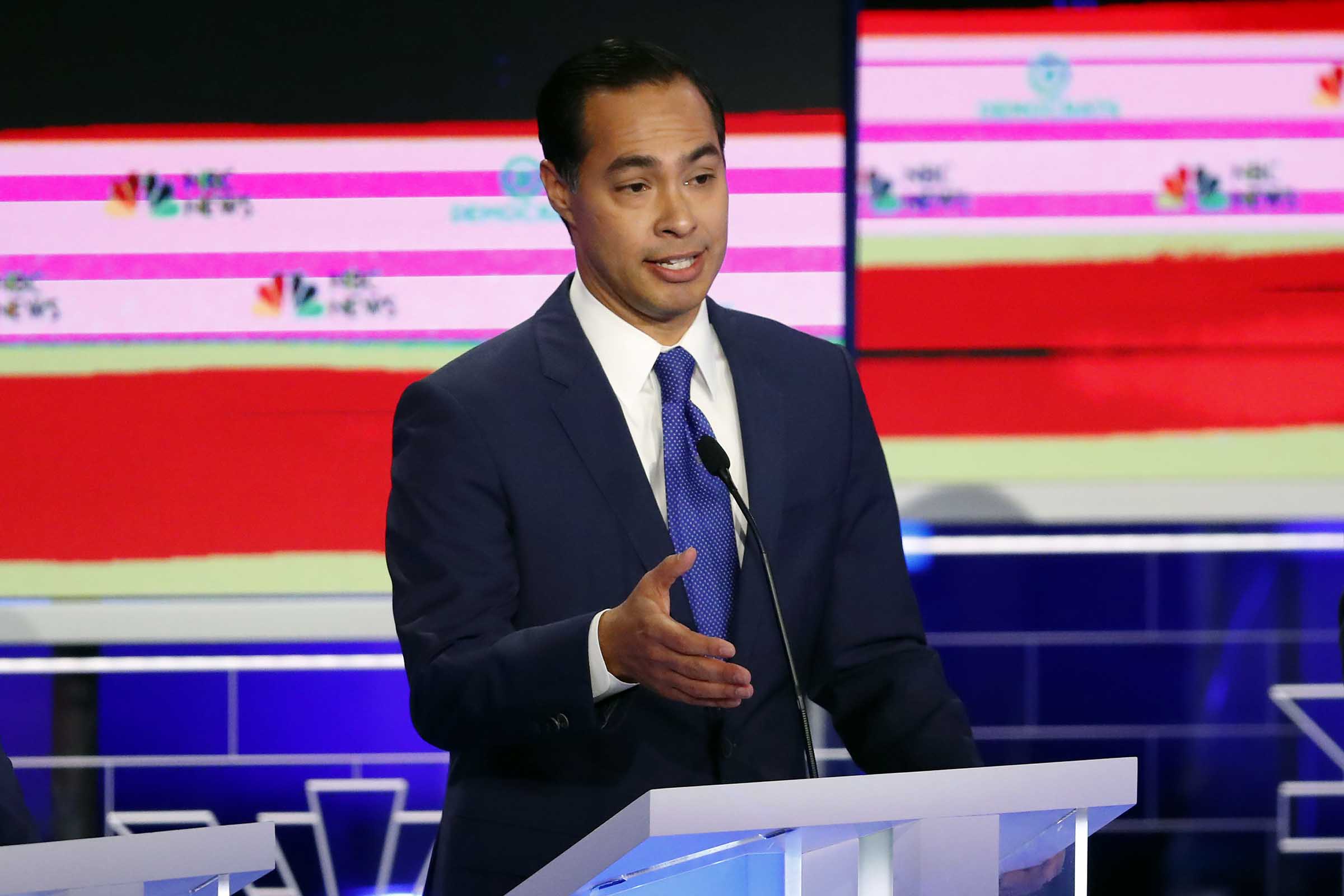
Immigration policy was always likely to dominate the first 2020 debates. They were held in Miami, a city where 70% of the population is Hispanic, in the middle of a news cycle dominated by the squalid conditions for children in Texas detention centers and a tragic photo of a father and daughter who drowned trying to reach the U.S.
While only three candidates had initially planned to visit a nearby detention center for unaccompanied minors in Homestead, Fla., it soon became a necessary pilgrimage for most of the candidates. Not allowed to tour the facility, they met with local activists and officials in 100-degree heat. Some, like Warren, stood on a ladder and peered over the gate, waving at the children outside the facility. All of them used it as a backdrop to condemn Trump’s immigration policies for the rising desperation at the border.
But on the debate stage, few of the candidates were able to answer how they would solve a crisis that is overwhelming an already backlogged immigration system. Castro, the only Latino candidate and the first to roll out a detailed immigration platform, was able to distinguish himself by articulating a set of proposals to alleviate the crisis. This includes decriminalizing illegal border crossings, which most other candidates, when put on the spot, said they supported.
But most still defaulted to a morality argument against Trump, which is unlikely to be enough in the coming months. In the words of Miami-Dade County Commissioner and mayoral candidate Daniella Levine Cava, Democrats “can’t just pontificate about their values, they have to lay out a practical process.” — Vera Bergengruen/Miami
5. Climate change was finally a topic. It still wasn’t handled well
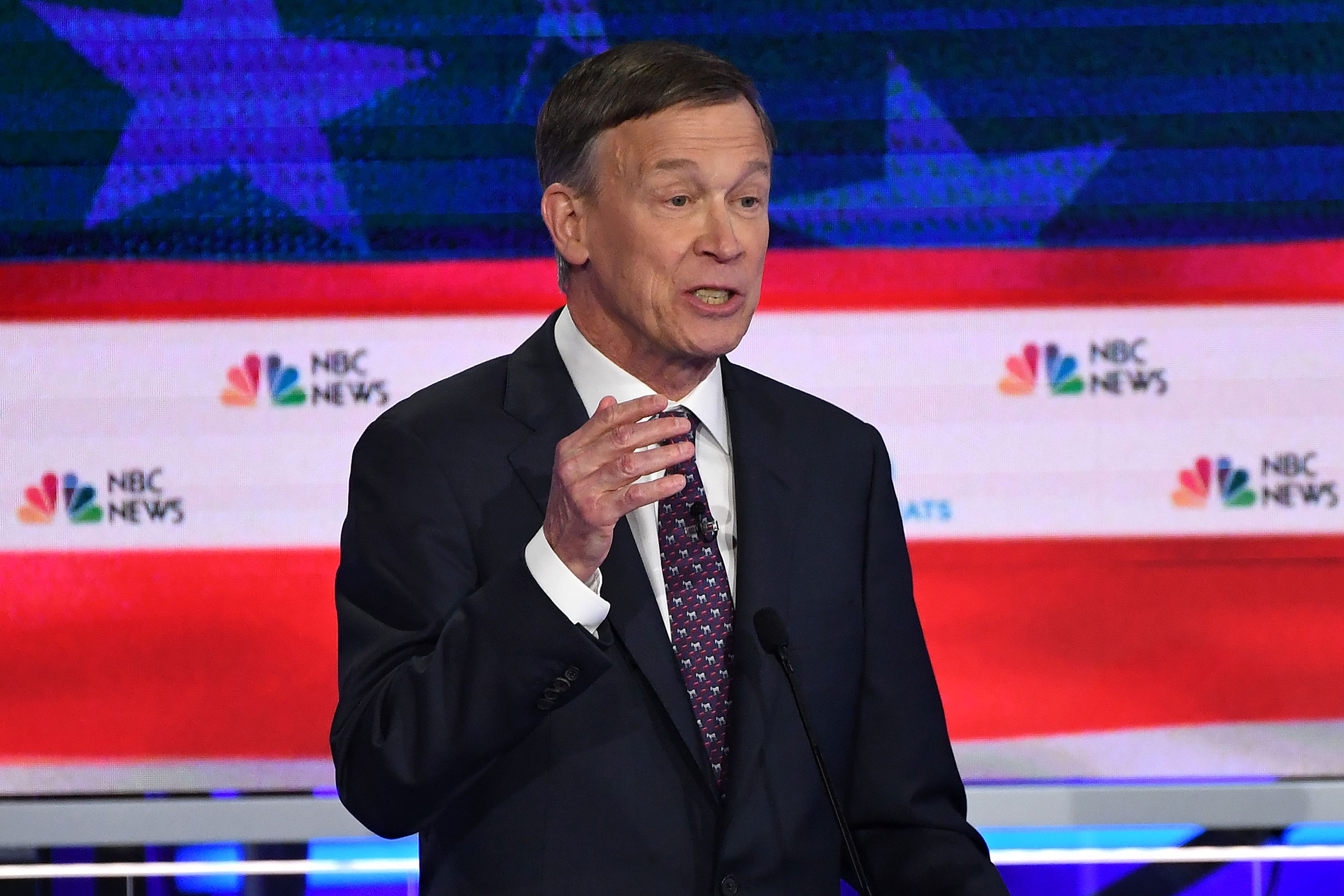
In the last general election debates, moderators did not ask a single question on climate change. And while the climate crisis was a recurrent subject at the Miami debates, it was not quite a subject of debate. On the second night, candidates largely stuck to their talking points. Harris talked about recommitting to the Paris Agreement and supporting a Green New Deal. Former Colorado Gov. John Hickenlooper talked about an inclusive approach that includes the energy industry. And Biden cited the role the Obama Administration played in brokering the Paris Agreement and promised to strengthen the country’s international climate commitments.
But, while topics like health care and immigration inspired heated back-and-forths, with candidates delving into the intricacies of policy, such clashes were largely left out of the climate discussion. It’s not hard to see why: candidates are not accustomed to talking about the issue in a debate setting — or any setting for that matter. With a few exceptions, climate change has not been a policy focus of the Democratic contenders. Even moderator Chuck Todd bungled questions on the topic, confusing the meaning of climate mitigation — a phrase that refers to reducing emissions — with climate adaptation and asking a question about carbon-pricing that appeared to misunderstand the purpose of a carbon tax. It might have been an indicator of how little many journalists have engaged with the issue in recent years. — Justin Worland
Read More: The Debates Showed America Still Doesn’t Know How to Talk About Climate Change
6. Democrats are divided over health care
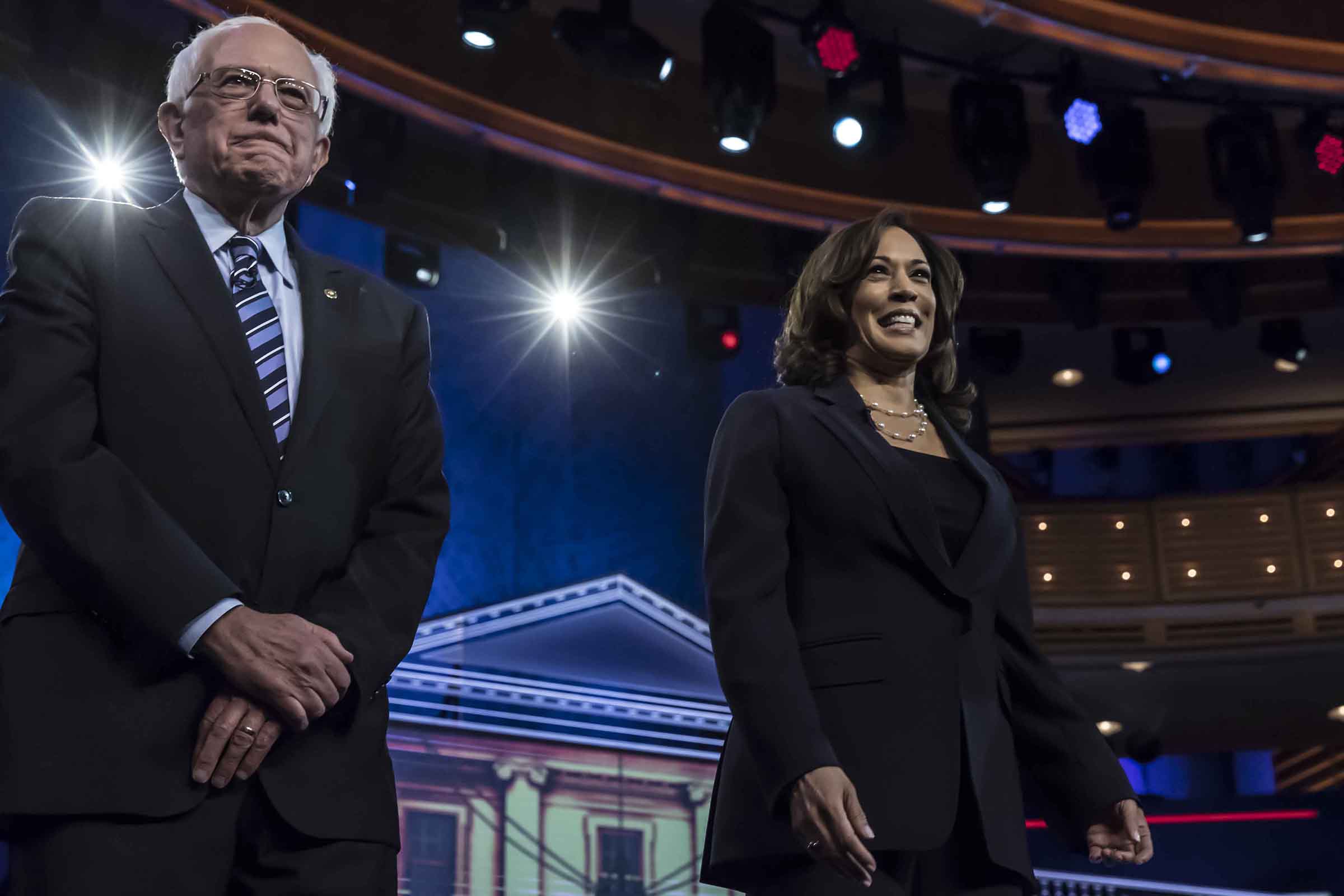
The split in how to expand health-care access reflected a deep tension for Democrats. When the moderators at the second debate asked who would abolish private health insurance, Sanders and Harris were the only two to raise their hands. That set off an intense discussion during which many of the other candidates argued more moderate plans, not Medicare for All, would be more popular and would more quickly secure health care coverage for all Americans. Colorado Sen. Michael Bennet, Biden, Buttigieg and Williamson explained they wanted to offer voters a choice, while Sanders, along with Harris, emphasized that they believe a Medicare for All plan is the only way to bring prices down and ensure that all people get the coverage they need.
All sides argued their path was the fastest way to achieve health coverage for all Americans. Even Gillibrand, who appeared to split the difference in her answer — saying she still backs Sanders’ Medicare for All bill but not raising her hand to advocate eliminating private insurance — said phasing out private insurance was the best path forward.
“I believe we need to get to universal healthcare as a right, not a privilege to single payer. The quickest way you get there is you create competition with the insurers,” she said. “What will happen is people will choose Medicare. You will transition. We would get to Medicare for all. And then your step to single payer is so short.”
This embrace of Medicare for All while avoiding the language of nationalized health insurance is a balancing act that many of the Democrats have started to try. Bennet and Buttigieg pointed out that many Americans are satisfied with the insurance they have now, and even as Sanders tries to push his plan, their fear of taking that insurance away is likely to keep much of the Democratic field from fully raising their hands for a while still. — Abigail Abrams
7. ‘Adios, Trump’

Gone are the days when Democrats tiptoed to avoid accusations of wanting “open borders.” In Miami, the party’s candidates responded to Trump’s immigration crackdown by speaking Spanish, decrying the President’s family separation policy and invoking the deaths of Oscar Martinez and his 23-month-old daughter Valeria, whose deaths crossing the Rio Grande after trying to seek asylum were captured in a moving photograph this week, as a moral clarion call.
“Watching that image of Oscar and his daughter Valeria is heartbreaking. It should also piss us all off,” former Secretary of Housing and Urban Development Julián Castro said to applause.
Castro may have been the breakout star of the first debate, driving the conversation by arguing that illegal immigration should be decriminalized. By the second night, every candidate on stage, which included most of the field’s top tier, raised their hand when asked if their health care plan would provide coverage for undocumented children.— Lissandra Villa
8. Democrats didn’t talk about terrorism

At the end of the first debate, the candidates were asked to identify the greatest geopolitical threat to the United States. Most of them cited climate change or China, with some mentioning the tense situation with Iran, Russia, or Trump himself. Strikingly absent was the issue of terrorism. Though the Democratic field has its first generation of post-9/11 military veterans running for president — Buttigieg, Rep. Tulsi Gabbard and Rep. Seth Moulton all served in either Iraq or Afghanistan — the candidates spoke relatively little in Miami about the wars that have dominated the last two decades, or the thousands of Americans still fighting them abroad.
Even a pointed question by the moderators about the two U.S. service members killed in Afghanistan on Wednesday only highlighted candidates’ reluctance to engage with the issue. While Gabbard and Rep. Tim Ryan sparred about the U.S. involvement in Afghanistan, it seemed disconnected from actual foreign policy or national security concerns.
Some of this reflects America’s changing priorities, as the Islamic State has lost its territory and the Pentagon’s new strategy emphasizes great power competition with China. But it was a stark contrast from the debates four years ago, where Republicans tried to outdo each other with vows to get tough in ISIS terrorists. The Trump campaign plans to tout the President as a decisive national security candidate, emphasizing the defeat of ISIS, the increased defense budget, his deployment of troops to the southern border and his tough talk on threats both real and imagined. It remains to be seen how the Democrats will articulate a national-security vision of their own. — Vera Bergengruen/Miami
9. The candidates finally went after Trump
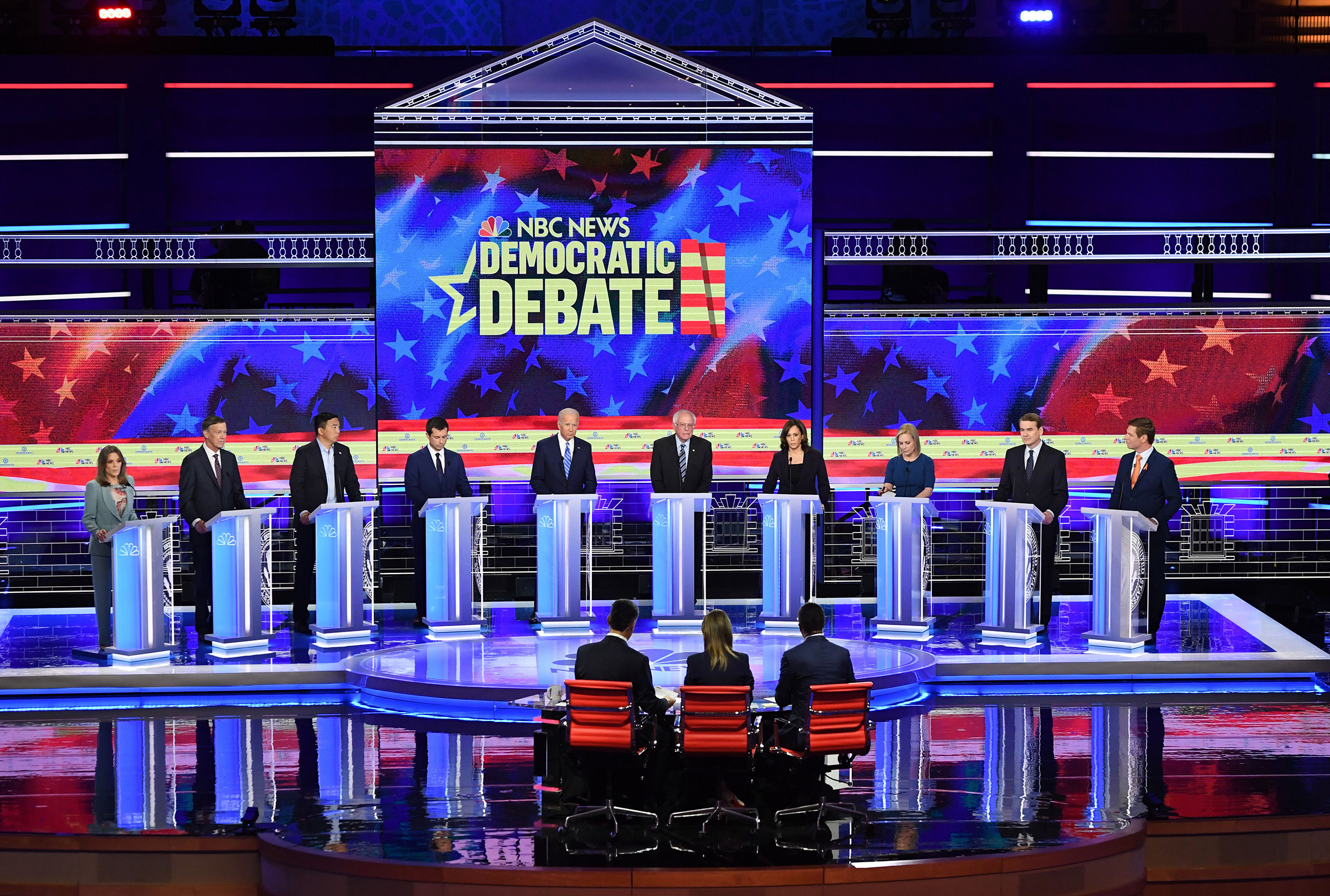
Throughout the 2018 midterm elections and for much of the 2020 campaign, many Democratic candidates chose to focus their message on health care and the economy rather than get bogged down attacking the President. And while Trump was an occasional target on the first night in Miami, the candidates changed tack sharply on night two, targeting Trump incessantly.
“Donald Trump” were the first words out of Biden’s mouth in response to a question about systemic change to the economy. He, Harris and Sanders criticized Trump for his tax bill, while several others onstage slammed his Administration for separating migrant families at the border. “The president has turned the border of the United States into a symbol of nativist hostility,” said Bennet.
The apparent shift in strategy may reflect that Democratic voters now say they prioritize a candidate’s ability to beat Trump over stances on the issues, by a 58% to 39% margin, according to a June Gallup poll. “Who can beat Donald Trump in 2020?” Andrew Yang said onstage of the question animating the primary. “That is the right question.” — Tessa Berenson
10. The Democratic field has lurched left

The scene will surely be the basis of an ad for Trump’s re-election. There were the Democratic presidential contenders, hands hoisted overhead, declaring that they would decriminalize illegal border-crossing. It was par for the course during the opening Democratic debates in Miami. The candidates said they would shut down the private health-insurance system, extend access to abortion to trans women, and give undocumented immigrants access to healthcare. The lurch to the left may be a savvy move in a Democratic primary, but perhaps a dangerous side-step from the pragmatism that defined the Obama era. None of this makes it easier for contenders to win back anxious voters in the upper Midwest, or expand the electoral map to states like Arizona and Georgia. This pivot has concerned moderates and centrists in the party, including some presidential candidates. “If we don’t clearly define that we are not socialists, the Republicans are going to come at us every way they can and call us socialists,” former Colorado Gov. John Hickenlooper warned from the debate stage Thursday night.— Philip Elliott/ Miami
More Must-Reads From TIME
- The 100 Most Influential People of 2024
- Coco Gauff Is Playing for Herself Now
- Scenes From Pro-Palestinian Encampments Across U.S. Universities
- 6 Compliments That Land Every Time
- If You're Dating Right Now , You're Brave: Column
- The AI That Could Heal a Divided Internet
- Fallout Is a Brilliant Model for the Future of Video Game Adaptations
- Want Weekly Recs on What to Watch, Read, and More? Sign Up for Worth Your Time
Contact us at letters@time.com
